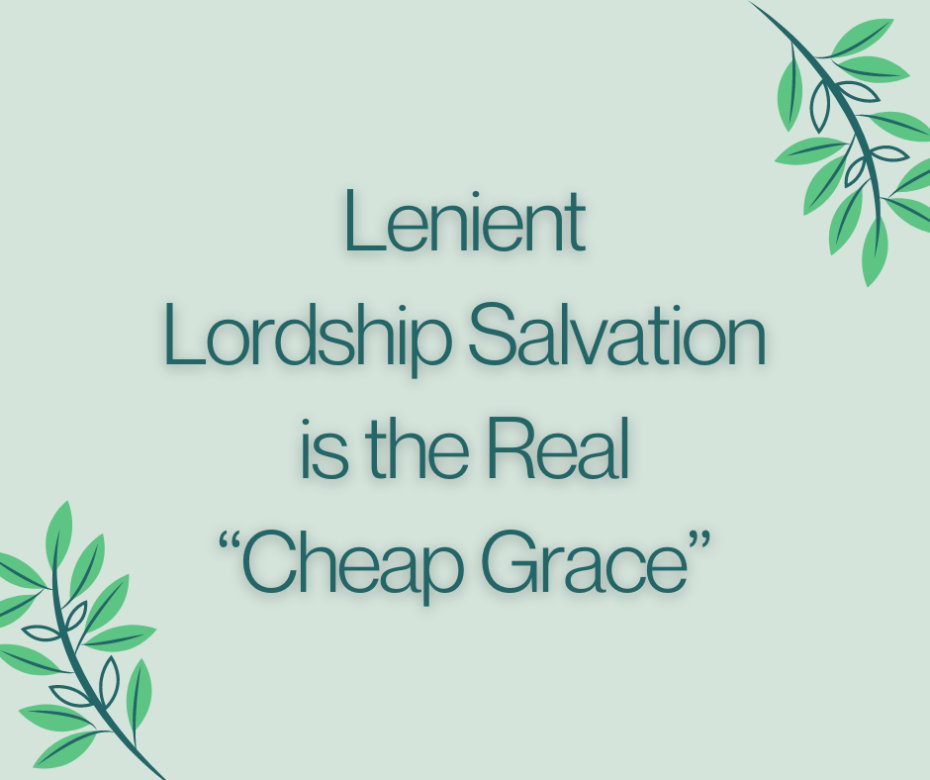The Free Grace position is often mischaracterized as “cheap grace.”
That’s totally false.
To say something is “cheap” implies it costs something, no matter how little. But eternal life does not cost you anything. The only condition to have everlasting life is to simply believe in Jesus for that free gift (cf. John 3:16; Eph 2:8-9).
Grace is free, not cheap!
That’s why we call our theology “Free Grace.” How much clearer can we be?
So what is a real example of “cheap grace”?
Here’s an interesting quote from Mark Seifrid concerning Martin Luther and the problem of indulgences:
It is often overlooked that Luther knew a lenient penitential tradition as well as a strict one. Although he was given assurance that God’s anger against sin was satisfied with a “mere sigh” of repentance, he simply could not persuade himself that such comfort was valid: “For I used to ask myself, ‘Who knows whether such consolations are to be believed?’” Having found the answer to his questions in the word of promise fulfilled in Christ, it was the “cheap grace” of the sale of indulgences which stirred him out of his more or less personal concerns into public action” (Seifrid, Christ, Our Righteousness, note 2, p. 14).
When you believe in works salvation, you can’t set the bar too high, or people will get discouraged and lose faith in the religion.
To keep them hooked, you have to set the bar low enough for them to think they have a chance of successfully doing what needs to be done to be saved. Hence, Lordship Salvation teachers will almost never say you need to be perfect to get eternal life. Instead, they’ll say things like “do your best and God will do the rest.” They set the bar low. Really low.
That was true of Roman Catholicism in Luther’s day.
As Seifrid says, Luther knew “lenient” and “strict” versions of the penitential system, where some systems required lots of works for forgiveness, while others required nothing more than a mere “sigh” or repentance. Lordship Salvation is slippery that way!
But then the Roman Catholic Church got so corrupt it actually began to sell indulgences, i.e., guarantees of God’s forgiveness. Not only did you not have to repent or try to be good to be forgiven—you could just buy a “get out of hell free” card for money! Now that was “cheap grace”!
Whether a church teaches lenient Lordship or strict Lordship, it has set the bar too low.
The ransom price was Christ’s perfect life and substitutionary death. If a Lordship Salvationist requires anything less for salvation—i.e., anything you could do—that is too lenient and too cheap.


